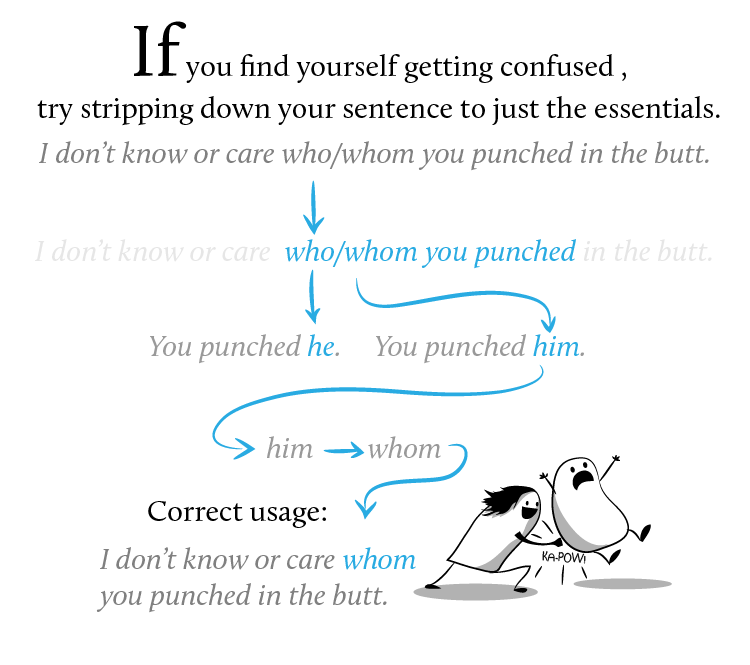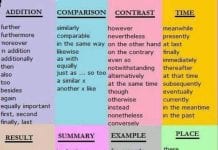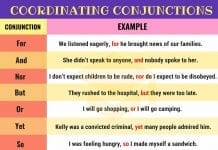Who vs whom. The difference between these words is that whom is the objective form of who, which was originally only a subjective pronoun. Compare:
- A woman was standing at the bar. > Who was standing at the bar? She was standing at the bar.
- I saw a woman at the bar. > Whom did you see at the bar? I saw her at the bar.
As you see in the examples above, if you can answer with she then who is correct. If you can answer using her, then whom is correct.
- The barman was talking to the woman. > To whom was the barman talking?
- The woman who was standing at the bar is Peter’s sister.
- The woman whom I saw at the bar is Peter’s sister.
- The woman to whom the barman was talking is Peter’s sister.
In the above sentences who is used in the subject position of the sentence or phrase, while whom is in the object position or after a preposition.
While whom can only be used in the object position or after a preposition, who can be used in both the subject and object positions.
Whom is not often used in modern spoken English, even though it is common in written, especially formal language. (If the sentence is long or complicated, and it is not convenient to separate the preposition from the pronoun, the preposition + whom structure may be used in spoken language, too.)
- We had already known the man who became the head of the office. (general)
- Those who need more information should ask the guide. (general)
- Who did you see at the bar? (general)
- Whom did you see at the bar? (very rare but possible)
- Who was the barman talking to? (general)
- To whom was the barman talking? (possible)
- He was respected by the people with whom he worked. (formal)
- He was respected by the people (who/that) he worked with. (informal)
- Who can we turn to in a time of crisis? (informal)
- To whom can we turn in a time of crisis? (formal)
Common phrases with whom:
- To whom it may concern (Used for addressing people, especially in a letter, when you do not know the name of the person who is in charge of the business you are writing or speaking about.)
- With whom do you wish to speak? (A very polite phrase used on the phone instead of the simple and neutral Who would you like to talk to?)
More for you:
Family Relationships in English And Phrases About Family


















![Request for Quotation [Template] 📮 How to Write an Email Asking for a Quote?](https://www.myenglishteacher.eu/blog/wp-content/uploads/2018/11/maxresdefault-218x150.jpg)
















The best explanation in the world! I loved it, thank you.
So cool! Thank you! ?